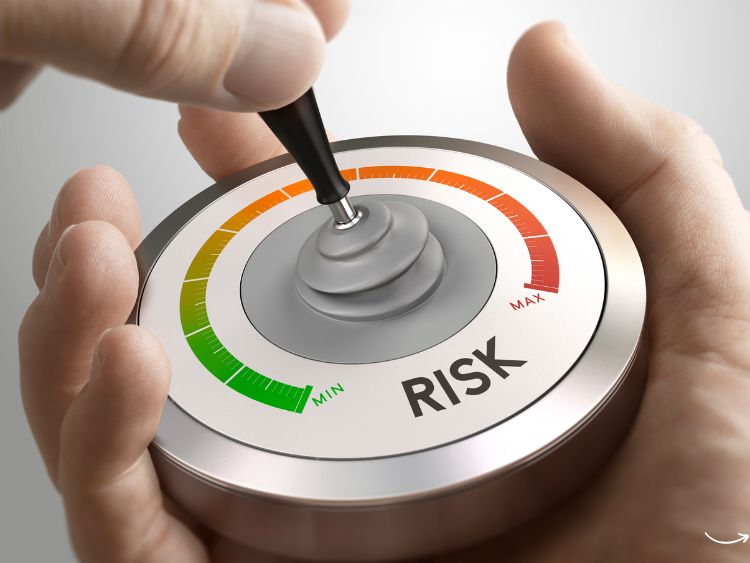In the dynamic world of business, uncertainty lingers around every corner. It’s not just about avoiding risks but managing them in a way that your organization can still steer towards success despite the inevitable bumps. This is where the expertise of a risk management consultant becomes invaluable. With a sharp eye for potential pitfalls and the savvy to devise effective strategies, these professionals help businesses not just survive, but thrive.
Imagine sailing in choppy waters without a skilled navigator. That’s akin to running a business without a risk management consultant. These consultants act as the navigators of the corporate world, guiding companies through the turbulent seas of market volatility, regulatory landscapes, and operational challenges. Their role is pivotal in ensuring that businesses not only foresee potential threats but also equip themselves adequately to handle unexpected events.
Who is a Risk Management Consultant?
A risk management consultant specializes in identifying, assessing, and mitigating risks that could potentially affect an organization’s capital and earnings. These consultants are often seasoned professionals with a background in finance, insurance, business administration, or related fields. They bring a wealth of knowledge and tools that allow them to foresee potential risks and implement strategies that minimize impacts on profitability and ensure business continuity.
What Does a Risk Management Consultant Do?
- Risk Assessment:
- Analyzing business processes to identify vulnerabilities.
- Assessing the likelihood and impact of potential risks.
- Strategy Development:
- Designing risk management strategies tailored to the specific needs of the business.
- Implementing risk mitigation plans to manage risk at an acceptable level.
- Training and Support:
- Educating staff on risk awareness and preventive measures.
- Providing ongoing support to implement and adjust risk management strategies.
- Continuous Monitoring:
- Regularly reviewing and updating risk assessments.
- Ensuring that risk management practices stay effective and relevant over time.
The Tools of the Trade
Risk management consultants utilize a variety of tools to help businesses effectively manage their risks:
- Risk Assessment Matrixes
- Scenario Analysis Techniques
- Financial Forecasting Models
- Regulatory Compliance Software
These tools are integral in providing detailed analysis and proactive measures that fortify a business against unforeseen adversities.
Importance of Risk Management Consulting
You might wonder, “Is investing in risk management consultancy really worth it?” Absolutely! Here’s why:
- Minimizes Financial Losses: Effective risk management strategies can save a company from significant financial pitfalls.
- Enhances Decision Making: With better understanding of risks, managers make more informed, confident decisions.
- Improves Reputation: Companies known for managing risks effectively gain credibility with clients, investors, and the public.
- Ensures Compliance: Staying on top of regulatory compliance avoids legal troubles and fines.
Hiring a Risk Management Consultant: What to Look For?
When you’re on the hunt for a risk management consultant, keep your eyes peeled for a few key traits and qualifications:
- Experience and Expertise: Look for consultants with a proven track record in your industry.
- Analytical Skills: They should possess strong analytical skills to dissect and foresee risks.
- Communication Skills: Effective communication is crucial for explaining risk issues and strategies to stakeholders.
- Certifications: Certifications such as Certified Risk Manager (CRM) or Project Management Professional (PMP) are significant pluses.
The Role in Different Industries
Risk management consultants play crucial roles across various sectors:
- Finance: They help manage risks in investment and banking activities.
- Healthcare: They ensure patient safety and compliance with health regulations.
- Manufacturing: They focus on supply chain and production risks.
- Technology: They deal with data security and technological advancements.
FAQs
What’s the difference between risk management and crisis management?
Risk management involves identifying and mitigating risks before they become issues. Crisis management, on the other hand, deals with responding to significant events after they have occurred.
Can small businesses benefit from risk management consultants?
Absolutely! No matter the size, any business can face risks that might disrupt operations. A consultant can tailor risk management strategies suitable for smaller scale operations.
How often should a risk management consultant review our strategies?
It’s generally advised to have a review at least annually or whenever significant changes occur within the business or its environment.
Summary
Risk management consultants are not just problem-solvers; they are strategic partners in your journey towards sustainability and success. They help navigate the complexities of risk in a way that allows you to seize opportunities while maintaining a safe harbor against potential threats. Whether you’re a startup or a seasoned enterprise, a risk management consultant can provide the expertise you need to safeguard your business’s future.



